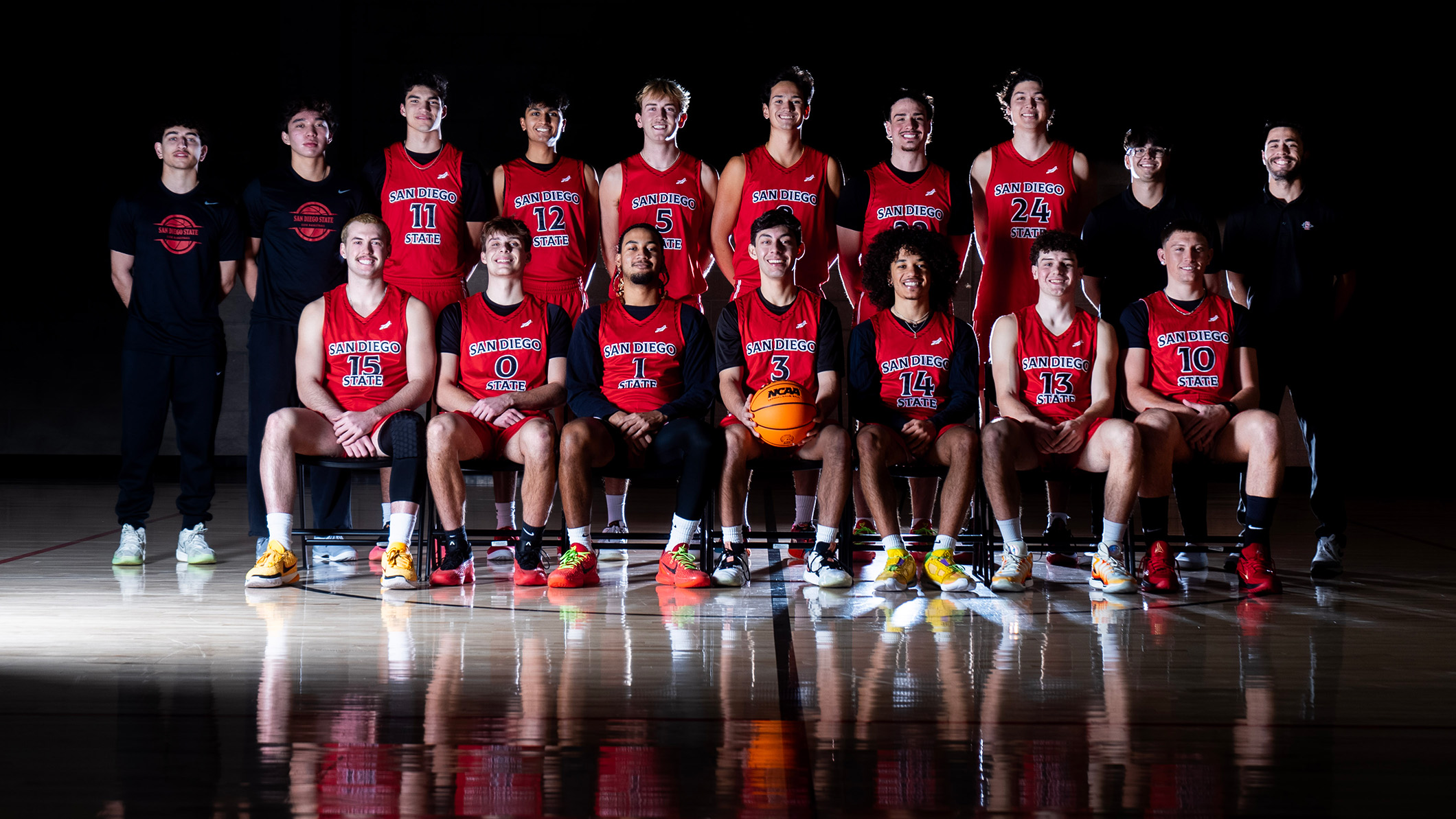Welcome to California. Now Get Involved.
Ever been to a Surf-a-Thon for dogs? SDSU makes a special effort to help out-of-state undergraduates feel at home.

For students who come to San Diego State University from out of state, getting involved on campus can be the difference between making SDSU a home away from home or heading home.
Mollie Schnee can attest to that. The native of Boulder, Colorado, is one of 3,955 undergraduate students from outside of California — 12.13 percent of the 32,599 undergrads. Two weeks into her freshman year, she seriously contemplated transferring back home.
“I was pretty homesick; I didn’t feel like there was much for me once I got here,” said Schnee, a senior psychology major with a minor in counseling and social change. “But then I started to get involved on campus and things changed.”
To that end, SDSU Glazer Center for Leadership and Service is spearheading an initiative to get out-of-state students involved in various aspects of campus life — and keeping score.
The “Out-of-State Involvement Scorecard” allows students to track their involvement in social, academic, leadership, service and student club activities.
The Glazer Center also hosted a service project specifically for out-of-state students — 25 attended — on Sept. 18 with a very California twist: the 2022 Surf Dog Surf-a-Thon fundraiser at Del Mar Dog Beach.
“Working with our out-of-state students has been fun and rewarding,” said Chelsea Lombrozo, assistant director of the Glazer Center. Offering specific programs and opportunities to connect them to San Diego and other out-of-state students makes me feel like I'm enhancing their college experience. My goal is to create a home away from home environment - these students have their home states and can still consider San Diego a great environment for them to learn and flourish.”
SDSU has seen out-of-state retention rates from the first to second year of school climb to 84 percent in Fall 2022, up from 75 percent in previous years. This number still trails the overall first-to-second year retention rate of 89 percent, according to university enrollment statistics.
“Transition for out-of-state students is harder, given in many cases students are thousands of miles away from home and away from their support system,” Dean of Students Randall Timm said.
Enter the score card.
Students who sign up for the scorecard are asked to complete the minimum number of activities for each category. For example, under the “social” category, students are asked to do things such as “attend any Aztec Nights event” or “attend an SDSU GO! Trip” or under service they can attend an Associated Students Community Service Commission meeting or a community service information session.
Students who successfully complete their scorecards by Nov. 1 will receive a SDSU swag package at the Home Away from Home Out-of-State Recognition Ceremony from noon to 2 p.m. Nov. 17, which will include a lunch at Scripps Cottage and bowling during the second hour at Aztec Lanes.
Maya Elden, a junior speech language and hearing sciences major from Charlotte, North Carolina, attended the Aztec Unity Project and is participating in the scorecard, both of which she said are great activities for students looking to meet people and find things to do on campus.
“They did an amazing job (with the surf-a-thon), the program itself was amazing and (the Glazer Center) did a great job getting a lot of out-of-state students to participate,” Elden said. “The scorecard is a great idea. I love that it has so many categories. It’s a really good way for students to get involved in all different aspects of campus life, and it’s also a great way to meet people.”
Elden said that Glazer Center emphasizing the out-of-state contingent this year is gratifying to see.
“It was hard for me my first couple of years on campus, between the (COVID-19) pandemic and trying to find a community while living on campus when there wasn’t anything in person going on,” Elden said. “It makes me glad to see them doing all these things, especially seeing how it was before these programs were implemented. It’s definitely making a difference. It was amazing to see the out-of-state students come together and meet people who shared the same experiences.”
One of the student organizations that Glazer Center has partnered with on the initiative is the Out-of-State Student Association at San Diego State University — Schnee co-founded the group.
Schnee said that her advice to first-year students is simple: Find your lane on campus. For her, that included finding a job in the out-of-state admissions department, which led to her involvement with the Out-of-State Students Association.
“My biggest piece of advice to students coming from out of state is to get involved; it makes a world of difference,” she said. “It’s hard coming from out of state. I don’t think people quite understand how hard it is. Getting involved at the very least takes your mind off of being far away from home and keeps you busy with other things to do instead of feeling homesick.”
Enroll in the Out of State Scorecard program. To learn more about the Out-of-State Students Association, email Jenna Green at [email protected]



